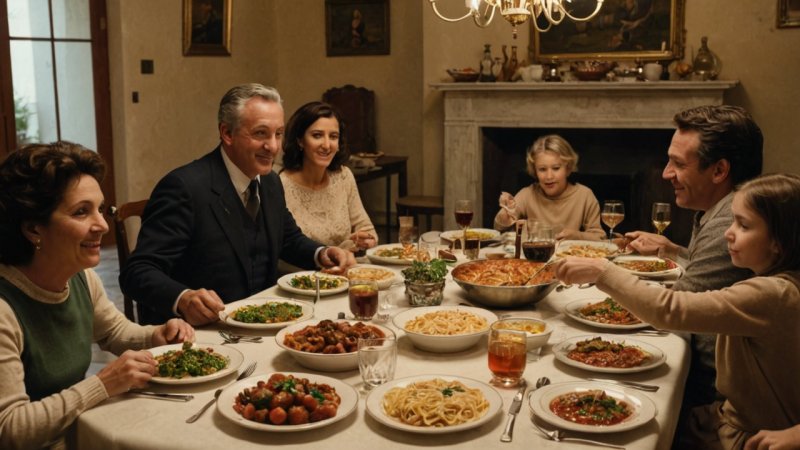Introduction
Italy is renowned for its rich culture, breathtaking landscapes, and delectable cuisine. However, at the heart of Italian culture lies the family, which plays a pivotal role in shaping the social fabric of the country. From Sunday dinners to festive celebrations, the significance of family is evident in everyday life. In this article, we will explore the top seven insights into the role of family in Italian society.
1. Family as the Core Unit
The Italian family is often seen as the cornerstone of society. It provides emotional support, financial assistance, and a sense of belonging. Families are typically close-knit, with extended families often living nearby or maintaining strong relationships. This closeness fosters a network of support that is crucial during both joyous occasions and challenging times.
2. Sunday Family Dinners
Sunday dinners are a cherished tradition in Italy, where families gather to share a meal and enjoy each other's company. This ritual often includes multiple courses, highlighting the importance of food in Italian culture. It’s a time for storytelling, laughter, and bonding, reinforcing family ties and traditions.
3. Respect for Elders
Respect for elders is deeply ingrained in Italian culture. Older family members are revered for their wisdom and experience. It’s customary for younger generations to seek advice and guidance from their grandparents, ensuring that traditions and values are passed down through the family lineage.
4. Celebrations and Milestones
Family celebrations, such as weddings, baptisms, and anniversaries, play a significant role in Italian society. These events are often grand affairs, filled with rituals, music, and abundant food. They serve not only to celebrate individual milestones but also to strengthen family ties and reaffirm shared values.
5. The Influence of Gender Roles
Traditional gender roles are still prevalent in Italian families, with women often taking on the role of caregivers and homemakers. This dynamic contributes to the nurturing environment within families. However, contemporary Italian society is gradually shifting, with more women pursuing careers while balancing family responsibilities.
6. Family Businesses
Many Italian families run small businesses together, often passed down through generations. These family enterprises are a testament to the strong work ethic and entrepreneurial spirit found in Italy. Working together not only fosters a sense of unity but also reinforces family values and traditions.
7. Family and Community
In Italy, the family extends beyond the immediate household to include a broader community. Neighbors are often regarded as part of the extended family, creating a sense of belonging that enhances social interactions. Community events and local festivals further cement these connections, fostering a supportive environment for families.
Conclusion
The role of family in Italian society is multifaceted, encompassing emotional support, cultural traditions, and social interactions. From the importance of Sunday dinners to the reverence for elders, family remains a fundamental aspect of Italian life. Understanding these dynamics offers valuable insights into the rich tapestry of Italian culture, making it an essential consideration for anyone looking to immerse themselves in this vibrant society.






